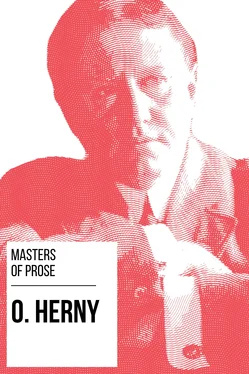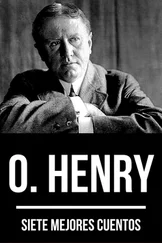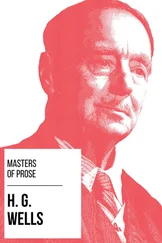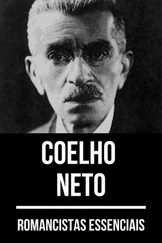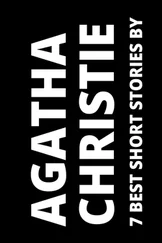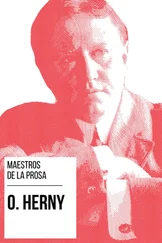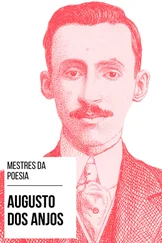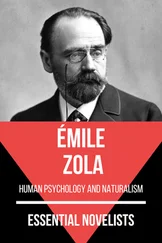Our fears must have been prophetic, for on that same evening the wildwood discharged upon us Milly's preordained confiscator—our fee to adjustment and order. But Alaska and not Wisconsin bore the burden of the visitation.
We were at our supper of beef stew and dried apples when he trotted in as if on the heels of a dog team, and made one of the mess at our table. With the freedom of the camps he assaulted our ears and claimed the fellowship of men lost in the wilds of a hash house. We embraced him as a specimen, and in three minutes we had all but died for one another as friends.
He was rugged and bearded and wind-dried. He had just come off the "trail," he said, at one of the North River ferries. I fancied I could see the snow dust of Chilcoot yet powdering his shoulders. And then he strewed the table with the nuggets, stuffed ptarmigans, bead work and seal pelts of the returned Klondiker, and began to prate to us of his millions.
"Bank drafts for two millions," was his summing up, "and a thousand a day piling up from my claims. And now I want some beef stew and canned peaches. I never got off the train since I mushed out of Seattle, and I'm hungry. The stuff the niggers feed you on Pullmans don't count. You gentlemen order what you want."
And then Milly loomed up with a thousand dishes on her bare arm—loomed up big and white and pink and awful as Mount Saint Elias—with a smile like day breaking in a gulch. And the Klondiker threw down his pelts and nuggets as dross, and let his jaw fall half-way, and stared at her. You could almost see the diamond tiaras on Milly's brow and the hand-embroidered silk Paris gowns that he meant to buy for her.
At last the bollworm had attacked the cotton—the poison ivy was reaching out its tendrils to entwine the summer boarder—the millionaire lumberman, thinly disguised as the Alaskan miner, was about to engulf our Milly and upset Nature's adjustment.
Kraft was the first to act. He leaped up and pounded the Klondiker's back. "Come out and drink," he shouted. "Drink first and eat afterward." Judkins seized one arm and I the other. Gaily, roaringly, irresistibly, in jolly-good-fellow style, we dragged him from the restaurant to a café, stuffing his pockets with his embalmed birds and indigestible nuggets.
There he rumbled a roughly good-humoured protest. "That's the girl for my money," he declared. "She can eat out of my skillet the rest of her life. Why, I never see such a fine girl. I'm going back there and ask her to marry me. I guess she won't want to sling hash any more when she sees the pile of dust I've got."
"You'll take another whiskey and milk now," Kraft persuaded, with Satan's smile. "I thought you up-country fellows were better sports."
Kraft spent his puny store of coin at the bar and then gave Judkins and me such an appealing look that we went down to the last dime we had in toasting our guest.
Then, when our ammunition was gone and the Klondiker, still somewhat sober, began to babble again of Milly, Kraft whispered into his ear such a polite, barbed insult relating to people who were miserly with their funds, that the miner crashed down handful after handful of silver and notes, calling for all the fluids in the world to drown the imputation.
Thus the work was accomplished. With his own guns we drove him from the field. And then we had him carted to a distant small hotel and put to bed with his nuggets and baby seal-skins stuffed around him.
"He will never find Cypher's again," said Kraft. "He will propose to the first white apron he sees in a dairy restaurant to-morrow. And Milly—I mean the Natural Adjustment—is saved!"
And back to Cypher's went we three, and, finding customers scarce, we joined hands and did an Indian dance with Milly in the centre.
This, I say, happened three years ago. And about that time a little luck descended upon us three, and we were enabled to buy costlier and less wholesome food than Cypher's. Our paths separated, and I saw Kraft no more and Judkins seldom.
But, as I said, I saw a painting the other day that was sold for $5,000. The title was "Boadicea," and the figure seemed to fill all out-of-doors. But of all the picture's admirers who stood before it, I believe I was the only one who longed for Boadicea to stalk from her frame, bringing me corned-beef hash with poached egg.
I hurried away to see Kraft. His satanic eyes were the same, his hair was worse tangled, but his clothes had been made by a tailor.
"I didn't know," I said to him.
"We've bought a cottage in the Bronx with the money," said he. "Any evening at 7."
"Then," said I, "when you led us against the lumberman—the—Klondiker—it wasn't altogether on account of the Unerring Artistic Adjustment of Nature?"
"Well, not altogether," said Kraft, with a grin.
I don't suppose it will knock any of you people off your perch to read a contribution from an animal. Mr. Kipling and a good many others have demonstrated the fact that animals can express themselves in remunerative English, and no magazine goes to press nowadays without an animal story in it, except the old-style monthlies that are still running pictures of Bryan and the Mont Pélee horror.
But you needn't look for any stuck-up literature in my piece, such as Bearoo, the bear, and Snakoo, the snake, and Tammanoo, the tiger, talk in the jungle books. A yellow dog that's spent most of his life in a cheap New York flat, sleeping in a corner on an old sateen underskirt (the one she spilled port wine on at the Lady Longshoremen's banquet), mustn't be expected to perform any tricks with the art of speech.
I was born a yellow pup; date, locality, pedigree and weight unknown. The first thing I can recollect, an old woman had me in a basket at Broadway and Twenty-third trying to sell me to a fat lady. Old Mother Hubbard was boosting me to beat the band as a genuine Pomeranian-Hambletonian-Red-Irish-Cochin-China-Stoke-Pogis fox terrier. The fat lady chased a V around among the samples of gros grain flannelette in her shopping bag till she cornered it, and gave up. From that moment I was a pet—a mamma's own wootsey squidlums. Say, gentle reader, did you ever have a 200-pound woman breathing a flavour of Camembert cheese and Peau d'Espagne pick you up and wallop her nose all over you, remarking all the time in an Emma Eames tone of voice: "Oh, oo's um oodlum, doodlum, woodlum, toodlum, bitsy-witsy skoodlums?"
From a pedigreed yellow pup I grew up to be an anonymous yellow cur looking like a cross between an Angora cat and a box of lemons. But my mistress never tumbled. She thought that the two primeval pups that Noah chased into the ark were but a collateral branch of my ancestors. It took two policemen to keep her from entering me at the Madison Square Garden for the Siberian bloodhound prize.
I'll tell you about that flat. The house was the ordinary thing in New York, paved with Parian marble in the entrance hall and cobblestones above the first floor. Our flat was three—well, not flights—climbs up. My mistress rented it unfurnished, and put in the regular things—1903 antique unholstered parlour set, oil chromo of geishas in a Harlem tea house, rubber plant and husband.
By Sirius! there was a biped I felt sorry for. He was a little man with sandy hair and whiskers a good deal like mine. Henpecked?—well, toucans and flamingoes and pelicans all had their bills in him. He wiped the dishes and listened to my mistress tell about the cheap, ragged things the lady with the squirrel-skin coat on the second floor hung out on her line to dry. And every evening while she was getting supper she made him take me out on the end of a string for a walk.
If men knew how women pass the time when they are alone they'd never marry. Laura Lean Jibbey, peanut brittle, a little almond cream on the neck muscles, dishes unwashed, half an hour's talk with the iceman, reading a package of old letters, a couple of pickles and two bottles of malt extract, one hour peeking through a hole in the window shade into the flat across the air-shaft—that's about all there is to it. Twenty minutes before time for him to come home from work she straightens up the house, fixes her rat so it won't show, and gets out a lot of sewing for a ten-minute bluff.
Читать дальше
